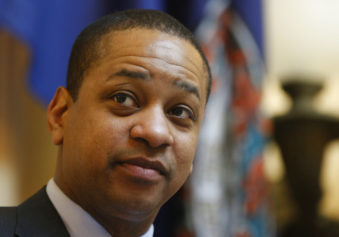Fifty years after the passage of the Voting Right Act (VRA) the battle over the right to vote continues. Much like racism, voter suppression hasn’t gone away— it’s just become more stealthy. In the past, racists used violent threats, poll taxes and unfair tests to prevent Black people from voting. Now, we have a string of voter ID laws, which are supposed to ensure voter integrity, but actually suppress minority and low-income voters.
Writing in The New York Times, Ari Berman says legislation to reauthorize the VRA has stalled.
“The Voting Rights Advancement Act of 2015, introduced in Congress in June, would compel states with a recent history of voting discrimination to once again clear election changes with the federal government and would require approval for specific measures that often target minority voters today,” Berman said. “But the bill hasn’t gone anywhere. On the 50th anniversary of the Voting Rights Act, Congress won’t even schedule a hearing.”
Much of the pushback against reauthorizing the VRA comes from the Republican Party, which seems to be convinced voter discrimination is a thing of the past.
“The U.S. Supreme Court ruled 5-4 in June that a key provision of the 1965 Voting Rights Act designed to prevent racial discrimination in certain voting laws was no longer necessary,” reported The Huffington Post. “The majority opinion, authored by Chief Justice John Roberts and joined by Justices Antonin Scalia, Anthony Kennedy, Clarence Thomas and Samuel Alito, stated that ‘things have changed dramatically’ in the South and that the ‘country has changed’ since the Voting Rights Act was passed.”
While the Supreme Court seems to be convinced that voter suppression is a thing of the past, the statistics tell another story. According to The New York Times, between 1965 and 2013 the Justice Department and federal courts blocked more than 3,000 discriminatory voting changes.
In 2000, Black people in Florida had trouble voting. There were long lines at voting booths, police cars were parked in Black neighborhoods and thousands of Black voters were mistakenly removed from the polls because they were thought to be felons. In an interview with Democracy Now!, Berman tells the story of Willie Steen, a Black veteran of the Gulf War, who was barred from voting in the 2000 election because of being incorrectly labeled a felon. Steen pointed out that he worked at a hospital, and it was impossible to get that job if you have a felony.
“And so what happened was, thousands of people showed up on Election Day, were told that they were felons—wrongly—and weren’t able to vote,” Berman told Democracy Now! “After the election, the state ran the numbers again and found that 12,000 people were wrongly labeled as felons and potentially purged from the rolls. That was 500—that was 22 times Bush’s 537-vote margin of victory. So, this purge could have very well decided the Florida election.”
Berman also pointed out that several Republican governors, such as Wisconsin Gov. Scott Walker, former Texas Gov. Rick Perry and Ohio Gov. John Kasich, have passed voter ID laws, which are supposed to prevent voter fraud. The problem is voter fraud rarely happens.
A Washington Post study found 31 cases of voter fraud out of 1 billion ballots cast since 2000. These voter ID laws are designed to shave off Black voters, who overwhelmingly vote Democratic. If these laws stop a few thousand Black people from voting, they can tip close elections in favor of the GOP. This is what happened in Florida in 2000.
Republicans believe they can win more elections by ensuring fewer Black, Latino, young and poor people vote. This was confirmed by conservative commentator Paul Weyrich in a quote in the 1981 book, The Hidden Election by Thomas Ferguson and Joel Rogers.
“So many of our Christians have what I call the goo-goo syndrome: good government. They want everybody to vote,” Weyrich said. “I don’t want everybody to vote. Elections are not won by a majority of people, they never have been from the beginning of our country and they are not now. As a matter of fact, our leverage in the elections quite candidly goes up as the voting populace goes down.”


